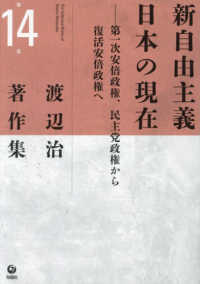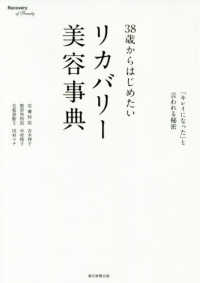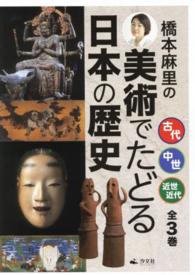- ホーム
- > 洋書
- > 英文書
- > Politics / International Relations
Full Description
This book focuses on how Burmanization created and reinforced ethnic divides since the 1962 coup d'etat. when General Ne Win concentrated all authority in the Burmese speaking army. Background research for the book includes Burmese language materials from the Burmese Socialist Party (BSP) and others that describe with what the BSP believed in their own terms. This is unique from previous works on the topic which either simply pointed out that the policies "didn't work" and therefore are uninteresting, or to claim that they were "necessary" given the chaos of the previous regime. The authors agree that Ne Win's policies "didn't work." However, the book goes further by elaborating why Burmanization policies developed in the 1960s are important for understanding Burmese society today. Most importantly, Ne Win's ideology reflects how patterns of interethnic relationships in Myanmar lead to the "intractability" of the battles in early twenty-first century Myanmar.
Contents
Part I: Introduction: Why Burmanization is Important.- Chapter 1: Eh Htoo's Auto-biography.- Chapter 2: Why Ne Win's Burmanization Policies are Still Important Sixty Years Later: The Burmese Burden.- Part II: The Historical Origins of Burmanization.- Chapter 3: Historical Narratives and Burmanization (1824-1947).- Chapter 4: Aung San, U Nu, and Ne Win Create a New Country (1948-1962).- Chapter 5: Ne Win's Burmanization Ideology: The Burmese Way to Socialism (1962-1966).- Chapter 6: Ne Win's Political Ideology: One Culture, One Economy, One Military(19671989).- Chapter 7: Ne Win's Policies after Ne Win (1988-2020) and Saw Eh Htoo's Hopes.- Part III: The Sociology of Burmanization and the Search for Peace.- Chapter 8: The Narratives of Othering and The Sociological Consequences of Burmanization.- Chapter 9: Final Thoughts about Burmanization by Tony Waters.








